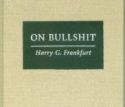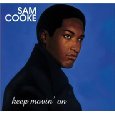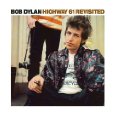Newsletter Archive
BS, Fiction, and The Truth
Thursday, October 21, 2010

As it's gotten difficult to watch TV without a barrage of political ads, I'm reminded of one of my favorite books, an elegant little pamphlet by Harry Frankfurt, Prof. Emeritus of philosophy at Princeton, entitled "On Bullsh*t." (Apologies to all who have taken offense at this point.) Frankfurt tells us that the BS'er is different from the liar. A liar knows what the truth is, and consciously denies it, in an act of deception about the facts. The BS'er simply makes things up, totally indifferent to the truth or falsity of his/her statements. The BS'er doesn't consciously misrepresent the facts, about which he/she might know nothing. Instead, the BS'er is misrepresenting himself/herself. The BS story he/she makes up is just a means to cast himself/herself in a false light. (It's tempting to poke fun at some egregious offenders right now, but I'm gonna restrain myself. You know who they are. :-)
Over years, BS'ing has graduated from light-hearted social activity into terrible policy, becoming rampant in the worlds of politics, media, and finance. I'm hoping, waiting, and in my small way working for a cultural shift to make a general intolerance of BS and greater demand for truth part of our cultural fabric. It's gonna be a long time coming (cue Sam Cooke), but I think it can be done, if not very easily (cue Bob Dylan). I don't think a greater respect for truth will end valid disagreements about what the truth is (nor should it), but I do think we might spend less time arguing over BS.

Now, what I do for a living is I make stuff up, put it into songs, sing it for people, and they pay me money to hear it. Am I a BS'er? (I can't help but seriously ask myself this every day.) The fiction writer, poet, and songwriter still need to stand the test of truth. But for us fictionalizers, the truth is more elusive, and doesn't lie in the particular "facts" offered in the writing. The truth of any fiction writing must be rooted in how well it speaks to the experience, the hearts and minds of those who listen to and read it, now AND over time. If it succeeds, the artist's work has the ring of timeless truth. And if it doesn't, well, it just smells like more BS. If truth in all its forms is what people demand, it can only make all of us better writers. :-)
So, having a BS detector is necessary for living effectively in our times. How do we know BS when we see it? I've concluded that anything people say (and do) for the sole purpose of their own short-term gain is quite likely to contain heaps of BS. How did I conclude that? In part, by reading the classics, works written (in Thucydides' words) not "to win the applause of the moment, but as a possession for all time." How do you hone your own BS detector?
----------------------
Links:
Harry Frankfurt, "On Bullshit." Buy at Amazon: http://tinyurl.com/29qr9ze
Sam Cooke, "Change is Gonna Come." Listen and buy: http://tinyurl.com/2b8xm8m
Otis Redding, "Change is Gonna Come." Listen and buy: http://tinyurl.com/25ftfy6
Bob Dylan, "Highway 61 Revisited." Listen and buy: http://tinyurl.com/37yfcpa
Jef Lee Johnson, "Highway 61 Revisited." Listen and buy: http://tinyurl.com/237fxjr
Sign up to read Herodotus with Reading Odyssey: http://herodotus2010-readinggroups.eventbrite.com
-------------------------------
Eyes and Ears: What I'm Reading, Listening to, and Watching
-Books
Mohandas Gandhi, ed. "The Bhagavad Gita According to Gandhi" http://tinyurl.com/32qd76w
Paul Krugman, "The Return of Depression Economics and the Crisis of 2008." http://tinyurl.com/2baeh8r
-Music:
Thelonious Monk, "Piano Solos." http://tinyurl.com/25pxmpa
David Murray, "Home." http://tinyurl.com/3a76nx8
-Movies:
"Eight Men Out" http://tinyurl.com/3473ssg
Over years, BS'ing has graduated from light-hearted social activity into terrible policy, becoming rampant in the worlds of politics, media, and finance. I'm hoping, waiting, and in my small way working for a cultural shift to make a general intolerance of BS and greater demand for truth part of our cultural fabric. It's gonna be a long time coming (cue Sam Cooke), but I think it can be done, if not very easily (cue Bob Dylan). I don't think a greater respect for truth will end valid disagreements about what the truth is (nor should it), but I do think we might spend less time arguing over BS.


Now, what I do for a living is I make stuff up, put it into songs, sing it for people, and they pay me money to hear it. Am I a BS'er? (I can't help but seriously ask myself this every day.) The fiction writer, poet, and songwriter still need to stand the test of truth. But for us fictionalizers, the truth is more elusive, and doesn't lie in the particular "facts" offered in the writing. The truth of any fiction writing must be rooted in how well it speaks to the experience, the hearts and minds of those who listen to and read it, now AND over time. If it succeeds, the artist's work has the ring of timeless truth. And if it doesn't, well, it just smells like more BS. If truth in all its forms is what people demand, it can only make all of us better writers. :-)
So, having a BS detector is necessary for living effectively in our times. How do we know BS when we see it? I've concluded that anything people say (and do) for the sole purpose of their own short-term gain is quite likely to contain heaps of BS. How did I conclude that? In part, by reading the classics, works written (in Thucydides' words) not "to win the applause of the moment, but as a possession for all time." How do you hone your own BS detector?
----------------------
Links:
Harry Frankfurt, "On Bullshit." Buy at Amazon: http://tinyurl.com/29qr9ze
Sam Cooke, "Change is Gonna Come." Listen and buy: http://tinyurl.com/2b8xm8m
Otis Redding, "Change is Gonna Come." Listen and buy: http://tinyurl.com/25ftfy6
Bob Dylan, "Highway 61 Revisited." Listen and buy: http://tinyurl.com/37yfcpa
Jef Lee Johnson, "Highway 61 Revisited." Listen and buy: http://tinyurl.com/237fxjr
Sign up to read Herodotus with Reading Odyssey: http://herodotus2010-readinggroups.eventbrite.com
-------------------------------
Eyes and Ears: What I'm Reading, Listening to, and Watching
-Books
Mohandas Gandhi, ed. "The Bhagavad Gita According to Gandhi" http://tinyurl.com/32qd76w
Paul Krugman, "The Return of Depression Economics and the Crisis of 2008." http://tinyurl.com/2baeh8r
-Music:
Thelonious Monk, "Piano Solos." http://tinyurl.com/25pxmpa
David Murray, "Home." http://tinyurl.com/3a76nx8
-Movies:
"Eight Men Out" http://tinyurl.com/3473ssg